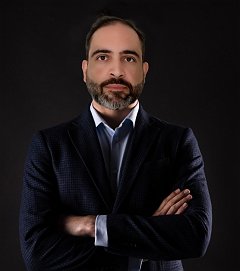How to use assistive technology to help deaf elderly people in the healthcare context
Assistive technologies, being an interdisciplinary area of knowledge, significantly improve people’s productivity, as does the use of services on mobile devices, including the telemedicine approach, these technologies aim to promote the participation and engagement of people with some level of disability or reduced mobility, making them more independent and with a better quality of life. Assistive technologies provides the assistance needed by the user to execute an action that maybe not be so simple. Up to the present moment in the healthcare context, the elements of change and improvement in technology are part of the day-to-day life of hospitals and doctors’ offices. Such advances, however, have not been able to bring more urgent impacts on the overall capacity of health systems to provide quality care. This is because these technological improvements serve to offer sustaining improvements, as predicted by the theory of disruptive innovation, that is, they provide the promotion of increased performance that increasingly enables them to serve “customers” (patients) more “demanding” in the best way. In this work we plan to study innovative ways to use assistive technology to aid hearing impaired elderly people accessing healthcare services.
